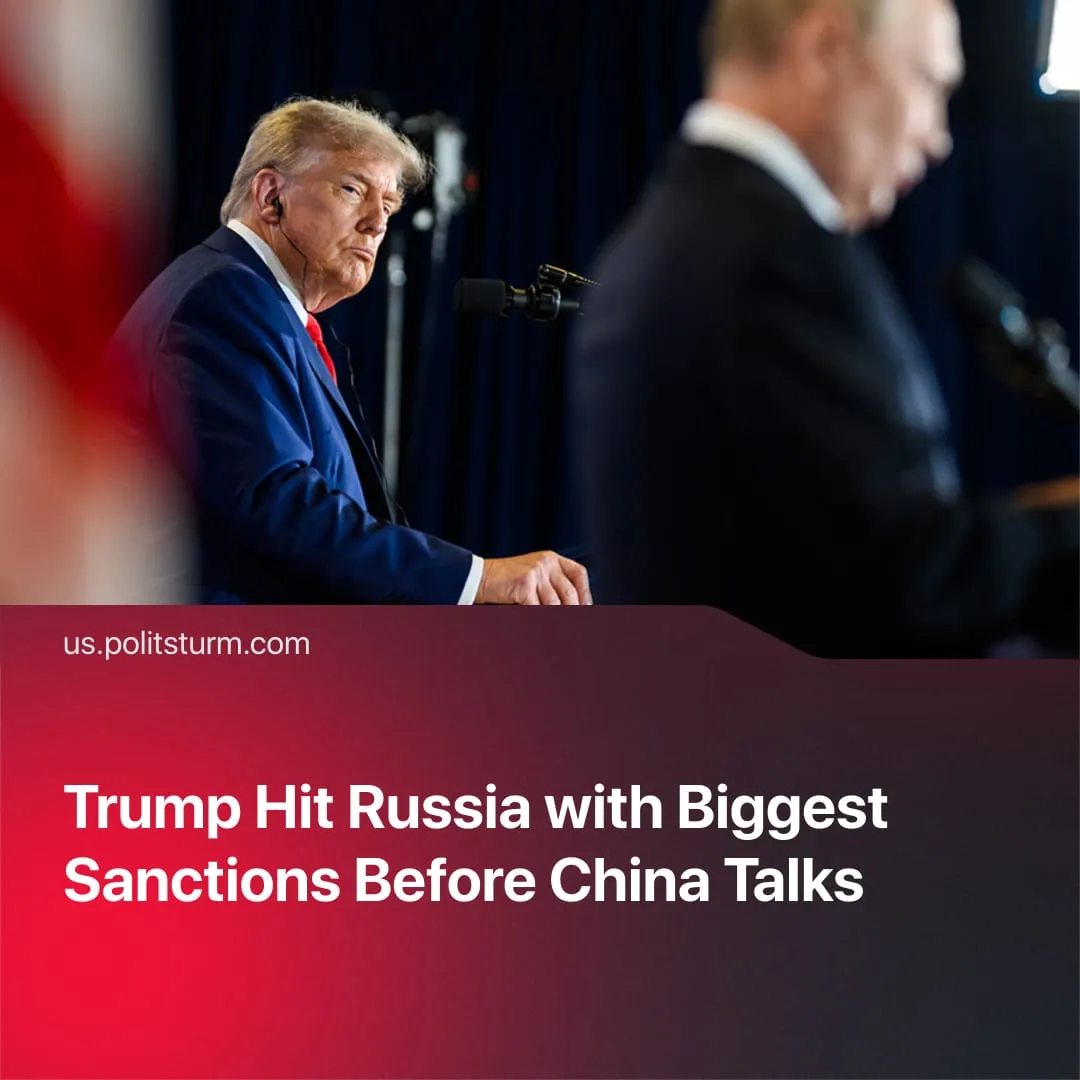Trump imposed the largest sanctions on Russia ahead of talks with China.
Details. The sanctions targeted Russia’s main oil firms, restricting tankers, financing, and insurance. Europe, Japan, and Canada joined by suspending imports and port access. Trump called it “a step toward peace,” while Zelensky demanded more pressure and Putin denounced “economic warfare.”
► The US Treasury’s latest directive targets Rosneft, Lukoil, and Gazprom subsidiaries, freezing overseas assets and banning dollar-based transactions linked to oil trading networks. Insurers and shipping firms risk secondary penalties if found servicing Russian crude routes.
► Several European ports – including Rotterdam, Hamburg and Gdańsk – have begun turning away Russian tankers lacking compliance certificates, while Japanese refineries have halted new orders citing uncertainty over payment channels.
► In response, Moscow has attempted to reroute exports through Turkey and Asian intermediaries, offering deep discounts to attract buyers.
Context. The sanctions come after months of faltering negotiations and reflect the shifting approaches to Moscow, moving from attempted rapprochement to renewed confrontation.
► Early in his term, Trump pursued direct talks with Russia to end the “Special Military Operation” and repeatedly pressured Ukraine to accept a Moscow-favourable settlement. These efforts alienated Washington’s European partners.
► Recently, Trump cancelled a planned meeting with Putin in Budapest, stating that “it just didn’t feel right” to continue amid a claimed lack of progress in diplomacy.
► Russia, meanwhile, deepened relations with non-Western states while becoming increasingly dependent on China as its primary economic partner. At the recent Shanghai Cooperation Organisation summit in Beijing, Putin blamed the West for provoking the conflict in Ukraine and rejected any ceasefire dictated by Western conditions.
Important to Know. By restricting Russian oil exports, the US aims not only to weaken Moscow’s fiscal base but also to constrain its main imperialist rival, China – the largest buyer of Russian fossil fuels – and to strengthen its bargaining position in recent talks with Xi. Trump emphasized this, noting the SMO “came up very strongly” as an issue and that “we talked about it for a long time, and we’re both going to work together to see if we can get something.”
► To reinforce this strategy, the US has simultaneously increased pressure on other partners of China and key trade routes. Military pressure on Venezuela and Iran, trade diplomacy with India, and pressure on Colombia, alongside Washington’s control over the Zangezur corridor between Armenia and Azerbaijan, aim to divert global trade from Beijing’s sphere and strengthen US negotiating leverage.
► For its part, China has strengthened its strategic position by deepening economic and infrastructural ties with Russia and other Belt and Road partners. Following the largest-ever SCO summit, Beijing signed multiple energy, infrastructure, and financial agreements with Russia, Kazakhstan, Azerbaijan, and other members, while committing to a SCO Development Bank and increased investments.
► Sanctions will further strain Russia’s exports and finances, increasing its reliance on China while also pressuring Moscow to consider deals favorable to the West to avert an economic crisis and internal unrest.


